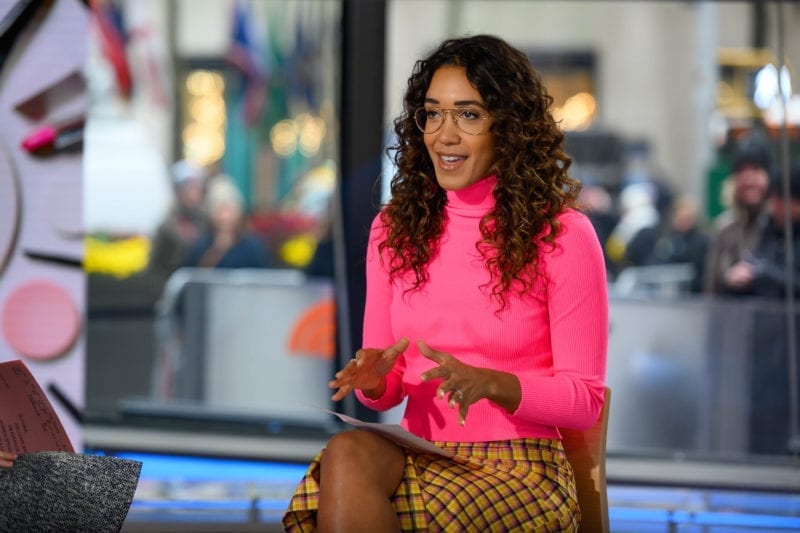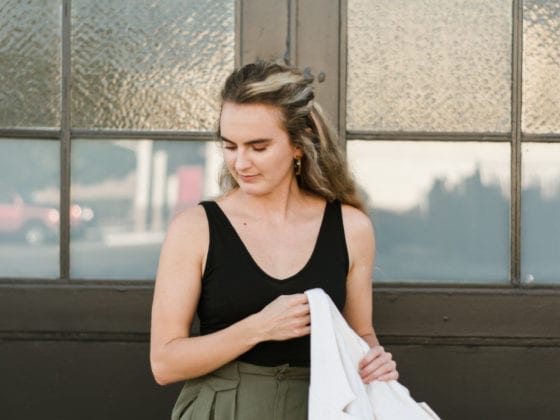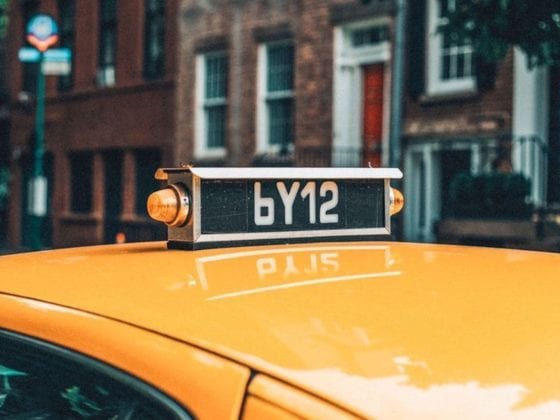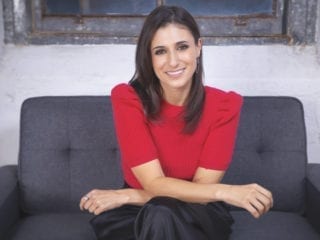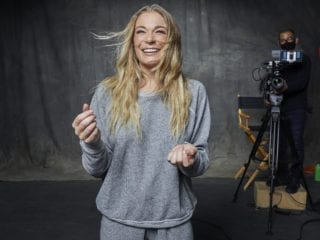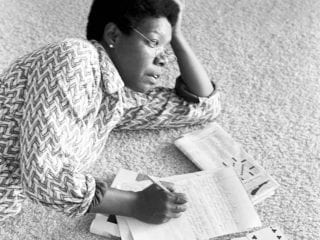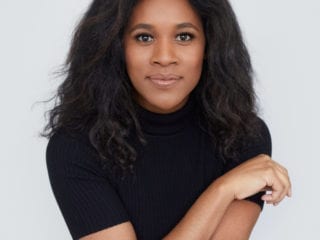“Real Women, Real Work” is a Darling series about everyday women who work in various fields including business, entertainment, science and education. We want to get to know the WHY behind their WHAT and get an inside look into different industries.
Simone Boyce is a woman who seeks balance in every aspect of life. Today, her passion for truth comes into play as a correspondent at NBC News Now, a new streaming network from NBC News, live everyday on Peacock. Simone got her early start in journalism as an entertainment reporter but decided to make the move to hard news in response to the unprecedented news cycle of 2016, marked by everything from the presidential election to nationwide protests for racial equality.
“I was watching it from the sidelines as an entertainment reporter, and I was like ‘Man, I wish I could add more to this conversation and raise my voice.'”
In the last four years of covering the news space, Simone has worked hard to tell important and timely stories to keep viewers at home informed with the most accurate information. She and her team at NBC News Now work meticulously to sort the facts from the fiction, which, in 2020, has become an increasingly tedious task.
“Nothing I studied in journalism school could have prepared me for the information ecosystem we find ourselves in today.” Simone explained in a recent essay she penned for Darling on the importance of media literacy. “Truth matters—now more than ever before.”
Darling got to chat with Simone about returning to work amidst the upheaval of 2020—from the global pandemic and the reckoning with racial injustice to the widespread misinformation and disinformation online—all while having a newborn in tow.
When you were a kid, what did you want to be when you grew up?
I started out on a very different path. I was interested in science and biology. I wanted to be a doctor, but I got to college and realized that I was not going to make it through Intro to Chemistry. I had a major reality check and switched careers.
I sort of just fell into journalism. When I switched majors, it felt like I should have been doing this all along. It was a natural fit. I grew up acting in theater and feeling comfortable with public speaking, and I always loved watching the news. Journalism was this really great intersection of things that l loved.
Was there an “aha” moment when you knew you wanted to be a reporter/news correspondent?
I think there were a few “aha” moments that led me to where I am now. I started out in entertainment reporting in both NYC and L.A. where I would interview actors and cover red carpet events. Eventually, I realized I wanted to cover something more substantial. I wanted to contribute to conversations about racial justice, identity and politics.
There was an “aha” moment in 2016, a year punctuated by many moments of police brutality and an extremely contentious election. I was watching it from the sidelines as an entertainment reporter. I was like, “Man, I wish I could add more to this conversation and raise my voice.” Soon after, I pivoted to the space I’m in now—breaking news and politics.
Were there any mishaps early on in your career? What were some lessons you learned from them?
I remember one that was so embarrassing that took place in college. I went to the University of Florida, a school that taught me everything about journalism from writing and editing to producing and shooting. It was an incredibly practical and thorough education.
We also had a student-run news cast, and I used to do the entertainment reports. One night, I had to change my position in the studio for technical issues and the teleprompter was so far away that I could not read it. I froze on air, and I think I said on air, “I can’t read it.”
It was horrifying. At the same time—in school and in smaller markets—that’s where you want to make those mistakes. Now, I never go on the air without having a hard copy of my script. You don’t really learn that stuff until you learn it the hard way. That is part of your education as a journalist—just being out there live and learning how to perform under pressure.
That is part of your education as a journalist—just being out there live and learning how to perform under pressure.
What does a typical day on the job look like?
I am usually up around 5 or 6 a.m. and start my day by nursing my son. From there, I try to get read in on the news of the day and get caught up on emails. Then, my NBC News Now team and I have our morning meeting to sort out what will be in our rundown for the day.
I spend the rest of my day reviewing scripts, writing scripts or recording taped portions for our show from my home camera. I also go live to get everybody caught up on the major headlines of the day.
It’s nonstop right now. We are constantly churning out explainer pieces that we hope are informative and provide context for our viewers. We’ve been doing a series in the lead-up to the election called “Rhetoric Versus Reality.” We hold up the candidates’ statements to what they have actually done. We really hope that this type of content is helpful to voters as they make their voices heard.
You recently shared with Darling a post on the importance of media literacy. How can the everyday person practically incorporate this into their daily lifestyle?
I really think the first step is pausing before posting something. There’s so much reactionary content on our social media feeds, and it’s often riddled with falsehoods. We know false information spreads faster than true information. In addition to subverting that knee-jerk reaction, it also wouldn’t hurt for all of us to intentionally and deliberately seek out perspectives from outside our own echo chambers.
On Instagram, you post helpful content about fact-checking information. Why are you so passionate about people being informed news consumers?
As a journalist, two of my pet peeves are contradictions and hypocrisy, but my pet peeves notwithstanding, we cannot afford to be misinformed during a pandemic.
Plus, there’s a huge emotional toll when we share false information that is quite literally designed to divide us. We actually used to agree on several shared truths, and we certainly weren’t as polarized as we are now. The path we’re currently on is unsustainable. We all have to do our part as news consumers to help us return to a healthier level of civil discourse.
What is it like to be a news correspondent amidst a pandemic and the reckoning over racial discrimination in America?
It has been a year of transformation for so many industries, and journalism is absolutely included in that. The way in which we shoot, produce and broadcast news has been completely upended by the pandemic. I am going live from my living room right now. We’re working with modest production values, and that’s forcing us and our audience to focus on substance.
I think there is a lot of good that can come from it. This unrelenting 2020 news cycle and the pandemic has reminded people just how essential journalists are and how important the work of good, fair journalists is to our society.
This unrelenting 2020 news cycle and the pandemic has reminded people just how essential journalists are and how important the work of good, fair journalists is to our society.
Personally, this was a big year for me. I gave birth in March at the beginning of the pandemic, right before lockdown. Shortly after that was the killing of George Flyod. It was difficult for me as a journalist who cares deeply about equality to watch all of that unfold and not be able to report on it. However, I know that, unfortunately, there will be more stories like it that need to be told, stories that I can lend my perspective to.
What are the most exciting and challenging parts of working in the media amidst an election?
As tragic as some of these stories are, we are living through history and that is exciting. As journalists, we have the privilege of documenting it—that’s a privilege that I take very seriously.
I think it is challenging right now because we are competing for viewers’ attention in a way that we never have before. The challenge is having the time and bandwidth to get to it all because there are so many stories that deserve our attention.
There’s no getting around the fact that trust in the media is declining. While that is disheartening, I do see it as a challenge and an exciting one. How can I help restore faith in traditional media by bringing objectivity and impartiality to the pieces I do every day?
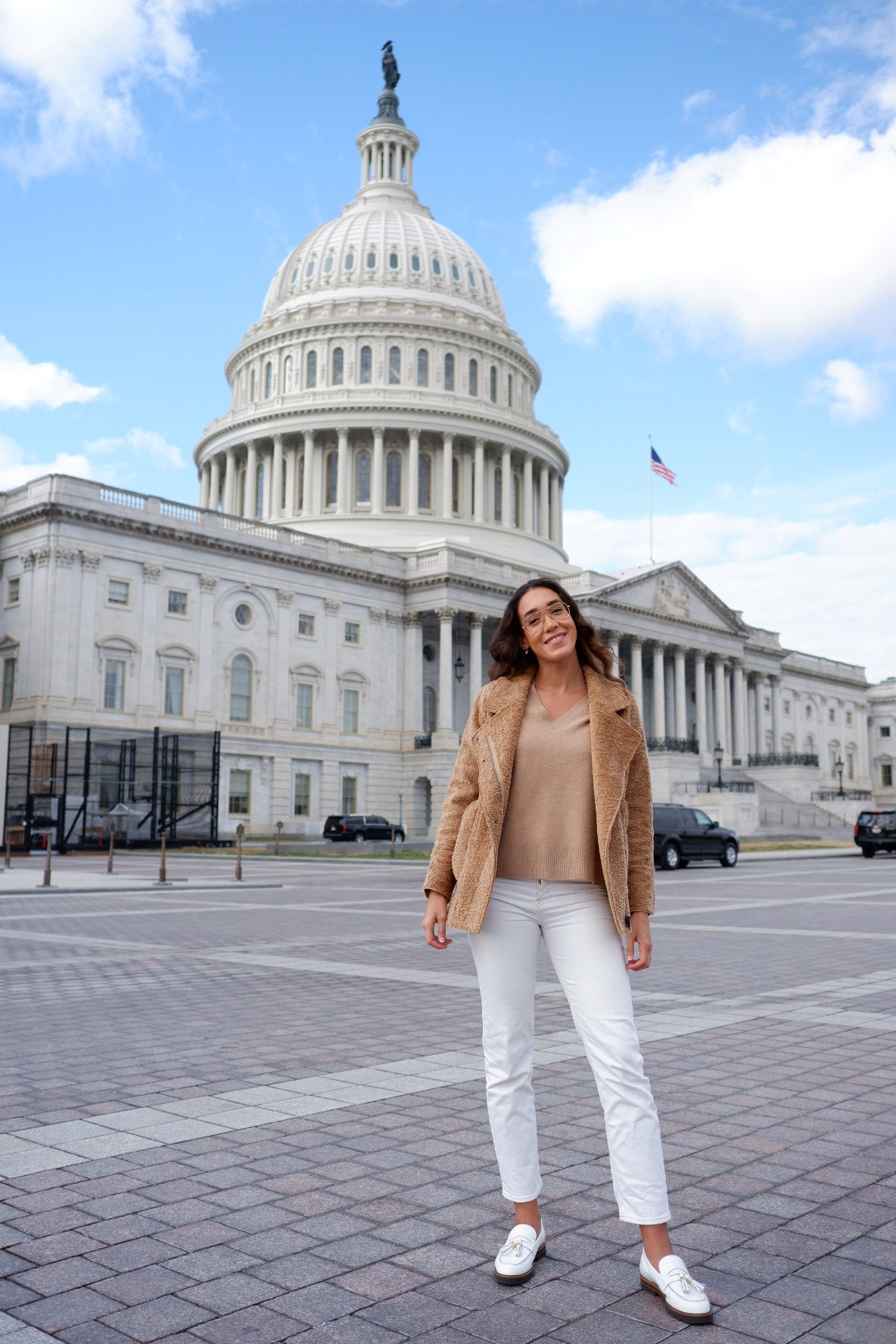 You recently had a son. Congratulations! What has the process been like returning to work after maternity leave?
You recently had a son. Congratulations! What has the process been like returning to work after maternity leave?
Looking back on my maternity leave, that period seems blissfully simple. I am so blessed in that I got to take six months off. My life is such a stark contrast to how easy my maternity was, even though I did have a newborn and wasn’t getting much sleep at the time. Right now, it’s really overwhelming, and it’s hard to put into words how overwhelming it is. I feel for parents of school-age children. That’s a whole different challenge.
A couple of days ago, I had the hardest and most stressful day I have had in a long time. My son was crying and wanted to be held nonstep. I had a dizzying amount of stories that needed to be completed for work. My husband and I were putting an offer on a house. I’m pretty sure you can hear my son’s cries in the background of some of my news stories. The scramble I am constantly in, it’s just a lot.
However, I know that all we can do is put one foot in front of the other. I keep telling myself, keep going, keep going. I take comfort in knowing that we are all stretched to our limit right now. If we have to be stressed like this, at least we are in this together.
I take comfort in knowing that we are all stretched to our limit right now . . . at least we are in this together.
What pressures, if any, have you experienced as a new mom working in media?
Media is a very competitive field. You are always wondering, Am I doing enough? Am I going far enough? Am I pushing myself hard enough?
There is this reckoning that happens when you become a mom. You can no longer give yourself equally in all directions or divide yourself in as many little pieces as you did prior to becoming a mom. It is a daily struggle to figure out how am I compartmentalizing my life today to accomplish everything?
It is challenging to be the best mom and best wife and the kind of ambitious working woman that you always dreamed of being. I’m discovering what I’m capable of and what my limitations are. Before becoming a mom, accepting my own limitations would have scared me. I’m learning to let go of that.
What advice would you give the young woman interested in pursuing a similar career path in journalism?
Don’t fear the unconventional path. I rejected the advice of so many of my college professors. I moved to the second largest news market, Los Angeles, right away, and I took a big risk starting there. It did work out, thankfully, and that risk paid off for me.
I’d also say, be true to yourself. That’s going to be more appealing to a future employer and to the viewers at home if you can show up to work authentically.
Knowing what you know now, what advice would you give to your younger self about life and career?
Don’t be afraid of reinvention. I would have told my younger self, don’t be afraid to pivot and pursue something that is more meaningful to you. Don’t pay attention to what people will say if you dare to do that.
Try things. Try an internship in politics in D.C. Go work in a foreign news bureau. Just experiment and don’t worry about what it might cost you.
Lastly, I would have told myself don’t wait so long to become a mother. It is challenging and trying, but it will expand your heart in ways you never thought imaginable. It will only give you a deeper sense of purpose.
To learn more about media literacy and Simone’s work as a news correspondent, follow her on Instagram!
Lead image via NBC News Now
